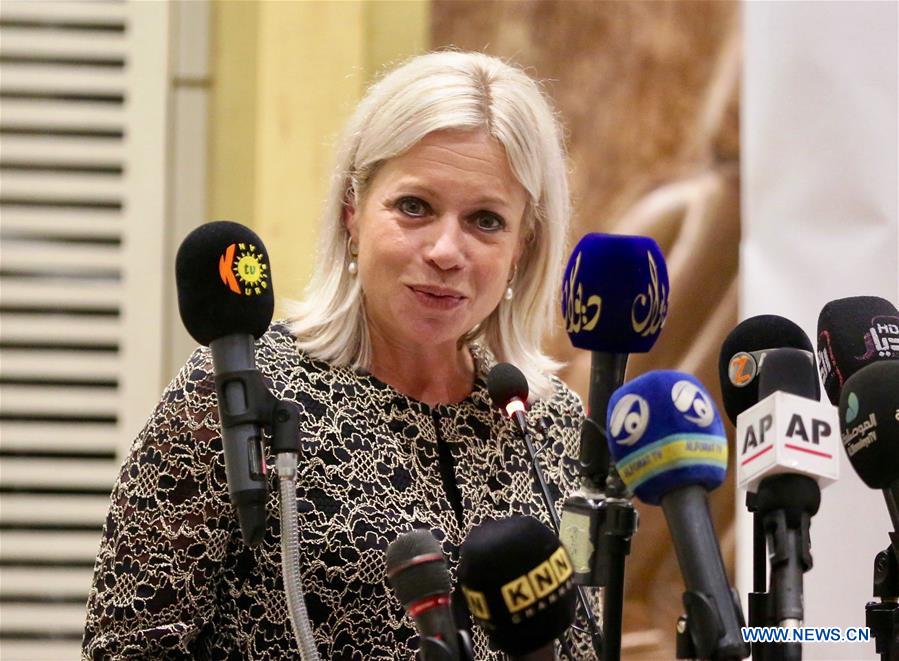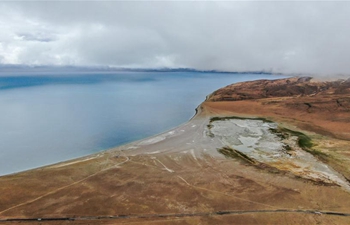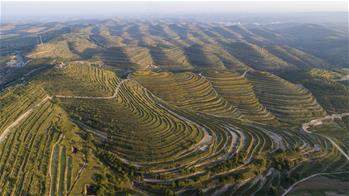
UN Secretary-General's Special Representative for Iraq Jeanine Hennis-Plasschaert speaks at a press conference in Baghdad, Iraq, on Aug. 1, 2019. Jeanine Hennis-Plasschaert on Thursday underlined the need to end the suffering of Yazidi minority caused by the Islamic State (IS) occupation of the northern Iraqi province of Nineveh. (Xinhua)
BAGHDAD, Aug. 1 (Xinhua) -- UN Special Representative in Iraq Jeanine Hennis-Plasschaert on Thursday underlined the need to end the suffering of Yazidi minority caused by the Islamic State (IS) occupation of the northern Iraqi province of Nineveh.
"We condemn what the Yazidis have experienced in Sinjar and other areas and we stand by their families in the ordeal that they have suffered," Hennis-Plasschaert, who also heads the UN Assistance Mission for Iraq, said at a press conference held by the Yazidi International Organization (Yazida) to mark the 5th anniversary of IS sweeping to Yazidi areas in 2014.
"We must work together with local and international parties to end the suffering of the Yazidis," Hennis-Plasschaert said.
She said that she was shocked during her recent visit to the town of Sinjar, some 100 km west of Nineveh's provincial capital Mosul, "because of what I saw of destruction in houses and roads."
Many Yazidi families are still in the camps and many children and women still do not get enough support, she noted.
Hala Sfail, one of the Yazidi females who survived the abduction of Yazidi women and children by IS militants, told the reporters that about 7,000 Yazidis, mostly women and children, have been killed by IS, while many villages were destroyed and entire families were killed.
"Although five years have passed since the invasion of Sinjar and other Yazidi villages by IS militants, the tragedy and suffering of the Yazidis continue, as the fate of more than 2,000 Yazidi women and children is still unknown, and many of their homes are still destroyed and many Yazidi families still live in the camps," Sfail said.
She called for making greater efforts for the reconstruction of Yazidi areas, and helping the Yazidis who are still living in camps in Iraq and Syria to return their homes.
Sfail also called for continuation of opening more mass graves so the Yazidi families can identify the missing members of their families.
It is estimated that there are around 500,000 Yazidis living in Iraq, about 80 percent of whom living in the towns of Sinjar and Bashiqa in Nineveh.
In 2014, when IS militants took control of vast areas in northern and central Iraq, they killed thousands of Yazidis and kidnapped thousands of Yazidi women and children.















